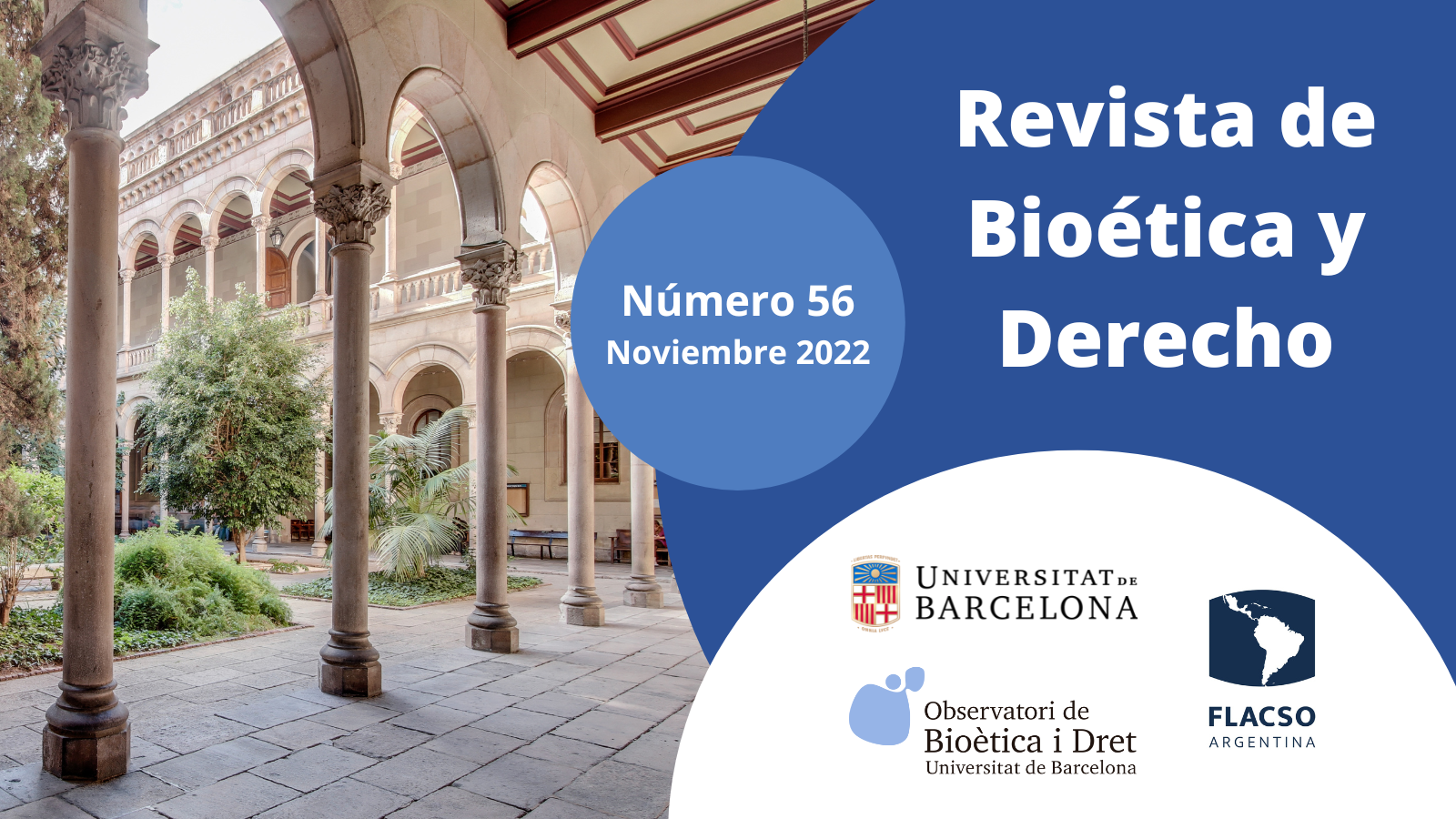THE BIOETHICAL CONTROVERSY OVER TRIAGE DURING THE COVID-19 PANDEMIC
DOI:
https://doi.org/10.1344/rbd2022.56.38674Abstract
The COVID-19 pandemic has put public health systems in crisis due to the accelerated increase in admissions to emergency services and intensive care units (ICU). This demand for critical care in a global health emergency has led to the need for triage methods to adequately select the patients most likely to survive the disease with better quality of life and years of survival. However, problematic decisions about triage are not merely a medical matter, but a bioethical decision that involves considering other social criteria to select patients fairly and equitably. These decisions must be deliberate and endorsed by hospital bioethics committees, they should not be taken solely by the health personnel in charge. This article addresses the problem in a general way and refers to the situation in Mexico, based on available data. The use of random and first-come arrival methods at the hospital is questioned for not being the fairest and most efficient in the use of scarce critical medicine resources during this pandemic. It also discusses the feasibility of using, together with medical criteria, the criteria of "social utility", some of which have already been applied in cases of waiting lists in organ transplants, in cases of tie-breaking and to help a more careful selection of patients to increase the number of people benefited in the ICU and the quality of life of the survivors.
Downloads
Published
How to Cite
Issue
Section
License
Copyright (c) 2022 Jorge E. Linares Salgado

This work is licensed under a Creative Commons Attribution-NonCommercial-NoDerivatives 4.0 International License.
 The author retains the copyright and grants Revista de Bioética y Derecho the right of first publication of the article. All articles published in Revista de Bioética y Derecho are under Creative Commons licensing Recognition – Non Commercial – NoDerivedArtwork (by-nc-nd 4.0), which allows sharing the content with third parties, provided that they acknowledge its authorship, initial publication in this journal and the terms of the license. No commercial use of the original work or generation of derivative works is permitted.
The author retains the copyright and grants Revista de Bioética y Derecho the right of first publication of the article. All articles published in Revista de Bioética y Derecho are under Creative Commons licensing Recognition – Non Commercial – NoDerivedArtwork (by-nc-nd 4.0), which allows sharing the content with third parties, provided that they acknowledge its authorship, initial publication in this journal and the terms of the license. No commercial use of the original work or generation of derivative works is permitted.







